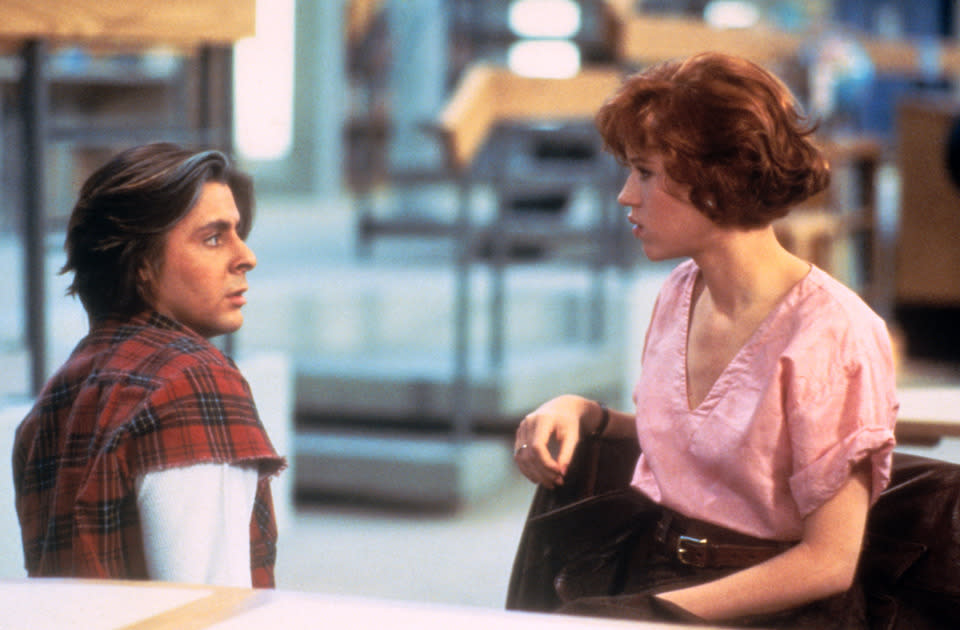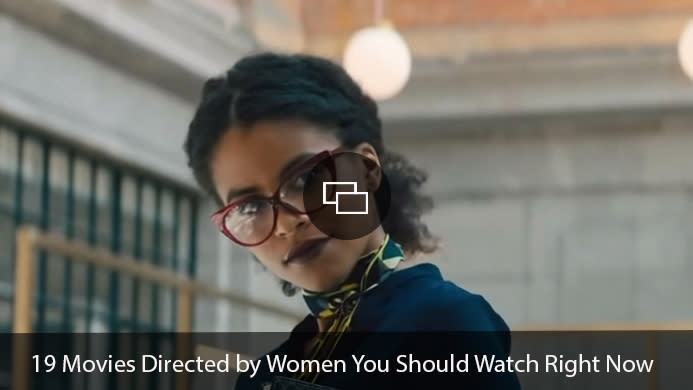Molly Ringwald Got Candid About the Parts of ‘The Breakfast Club’ That Just Don’t Sit Right Anymore

- Oops!Something went wrong.Please try again later.
Ah, The Breakfast Club – that quintessential ’80s teen movie that’s been a rite of passage for high schoolers across generations. With its unforgettable characters, from the brain to the athlete, the basket case, the princess, and the criminal, it’s a movie that encapsulated teenage angst and camaraderie in a way few films have.
But as we all know, time has a way of casting new shadows on our old favorites. Molly Ringwald, who starred in the film as the princess of the group, recently shared her candid thoughts about the film that made detention look cool – and it turns out, not everything about The Breakfast Club is as fist-pump-worthy as we remember.
More from SheKnows
Ringwald, who portrayed Claire Standish, revisited the 1985 film at the request of her daughter, Matilda. “I don’t enjoy watching myself on screen. I only rewatched The Breakfast Club, which came out in 1985, because Mathilda wanted to see it with me,” she recalled.
“There is a lot that I really love about the movie but there are elements that haven’t aged well — like Judd Nelson’s character, John Bender, who essentially sexually harasses my character. I’m glad we’re able to look at that and say things are truly different now,” she told The London Times.

Interestingly, this isn’t the first time Ringwald has expressed discomfort over Nelson’s portrayal of the bad boy, John Bender. In a poignant 2018 column for the New Yorker, she reflected on watching the film with her daughter, who was 10 at the time, and the discomfort she felt during certain scenes – especially the one where Bender peeks under Claire’s skirt. “I was quick to point out to my daughter that the person in the underwear wasn’t really me, though that clarification seemed inconsequential,” Ringwald wrote.
She went on to discuss how the art we consume can reinforce harmful attitudes towards women, particularly in the wake of the #MeToo movement. Her reflections also highlighted Bender’s overall treatment of Claire, not just as an object of sexual desire but also the target of his rage and mockery. Despite all this, the film concludes with Claire and Bender together, without any real accountability for Bender’s actions. “Just bury your head in the sand and wait for your f*****’ prom!” Bender yells. He never apologizes for any of it, but, nevertheless, he gets the girl in the end,” she wrote.
In response to Ringwald’s 2018 column, Nelson defended the movie as “a product of its time,” stating that he didn’t “see those problems that Molly sees” when speaking to The StarNews of Wilmington. This perspective, while not uncommon, underscores a larger issue in revisiting our beloved classics: recognizing and reconciling with problematic elements without diminishing the impact they’ve had on audiences.
Ringwald’s unfiltered reflections serve as an invite back to those Shermer High hallways, sparking a discussion on the delicate dance between cherishing and challenging our vintage screen gems with today’s glasses on. It’s like she’s nudging us to ponder – just as The Breakfast Club did back in the day – about who we are and who we’re becoming, not just as individual viewers but collectively, as a society shaped by the flickering tales on our screens.
Before you go, click here to see movies directed by women you should watch right now.
Best of SheKnows
11 Secret Celebrity Couples Who Didn't Reveal Their Romance Until After They Broke Up
These 31 Celebrity Couples Famously Broke Up & Got Back Together
Sign up for SheKnows' Newsletter. For the latest news, follow us on Facebook, Twitter, and Instagram.


